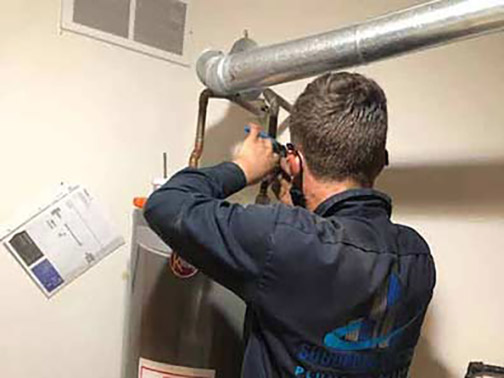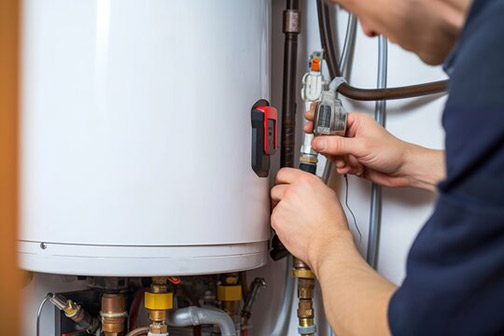
All water heaters, including the one in your home, come with an expiration date. Homeowners don’t like to hear this, but it is a fact of life. Your water heater will eventually reach the point where it needs to be replaced. How long should you expect your water heater to last?
According to Excellence Property Management, there is no fixed date when your water heater will stop working. But manufacturers do have an estimate of how long they expect their products to last. This depends on two things: the type of water heater you have in your home and the quality of maintenance the appliance receives.
Generally, if you have a tankless water heater, you can expect it to last 15 -20 years. Storage water heaters, due to their vulnerability to corrosion and other issues, last 8 – 12 years. These numbers are mere estimates that depend on several variables.
What happens if you don’t replace an aging water heater?
You risk a sudden failure that can flood your home or cause massive water damage. An aging water heater can also pose a safety risk. Due to aging, a weakened water heater tank can explode, causing bodily harm to people or even starting a fire in your home.
How do you know when it is time to replace your water heater?
5 signs it is time to replace your water heater
Insufficient hot water
This is the most common sign that a water heater is near or past its replacement age. If the water heater previously heated enough water to meet your household’s needs but can no longer do so, it may be time to replace it. This problem could also be due to a bad heating element, but if the water heater is older than 8 years, it is better to replace the entire appliance.
Strange noises
An aging water heater with excessive mineral buildup in the tank will make all kinds of strange noises. Popping sounds from the water heater occur when the mineral deposits at the bottom of the tank are heated and expand. Searing sounds, on the other hand, are caused by leaks. Searing sounds mostly happen when dripping water comes into physical contact with the burner. Shrieking and hissing sounds can happen as part of the normal function of the water heater.
Higher energy bills
Unless the utility company suddenly raises its rates, you know how much energy your home consumes on average each month. An aging water heater will cause spikes in your home’s energy usage. This happens because the unit becomes increasingly inefficient and needs ever more energy to heat water. Older water heaters have to work harder to reach the same performance level as they did in the past.
Rusty or discolored water
If your water heater is producing orange-tinted water, it is a sign that the tank is heavily corroded. Tiny rust and sediment particles that enter the hot water supply from the tank are responsible for this strange color. Rust in the inlet pipes, outlet pipes, and the water inlet valve can also color your water. If you determine that your water heater is indeed the source of the problem, the best solution is to replace it. You should not try to fix a leaky or rusty water heater tank.
Bad-tasting or smelly water
A metallic taste in your water means your water heater tank is corroded. Microscopic metal particles break off from the tank and enter the water. Consuming this water can cause long-term health problems. Your water may also have a bad odor. If this is not due to bacterial buildup inside the tank, it could be because the interior of the tank is deteriorating and dumping dangerous minerals into your water.

What to know before replacing your water heater
Here are some things to think about when replacing your water heater:
What is your preferred fuel type?
Would you prefer your water heater to run on electricity, gas, a heat pump, solar, or others? Before deciding, consider the cost and availability of that fuel type in your area. Also consider the specific cons of water heaters that run on that energy source.
How much water do you need?
How much hot water does your home need? If you frequently run out of hot water with your old water heater, you may want to consider upgrading to a unit with a bigger tank. Alternatively, you may want to install more than one water heater in your home.
How much space do you have?
This is not a problem if your new water heater is the same size as your old one. Otherwise, you need to check if your available space will accommodate the new water heater. You also won’t have this problem if you plan to install a tankless water heater.
Think of energy efficiency?
For the highest energy savings, only consider water heater models that carry the Energy Star label. To know the actual operating cost of different models, use each unit’s EnergyGuide label.
Lastly, working with a nearby Chicago plumber to find the right water for your home will help you avoid mistakes that can cost you in the future.

